In This Post
– What is a Schengen Visa?
– List of Schengen countries
– Schengen entry requirements
– Who needs a Schengen Visa?
– Types of Schengen Visa
– Visa application requirement
– How to apply for a Schengen Visa?
– General FAQs
Update (Feb 17, 2020): As per the updated Schengen Visa Code, the EU will now issue multiple-entry visas with the validity of one, three and five years. Those holding the multiple-entry visa can travel to the Schengen Zone as many times as they want. However, they can only stay in the Schengen Area for up to 90 days within a 180-day time period.
The new rules suggest that 1-year multiple-entry visa will only be issued to those applicants who have lawfully obtained and used three Schengen visas during the last two years. Meanwhile, in order to obtain the 2-year multiple-entry visa, the applicant must have used a 1-year multiple-entry visa within the last two years.
According to the updated Visa Code, the 5-year multiple-entry Schengen Visa will only be issued to the applicants who have used their 3-year multiple-entry visa within the last three years.
Planning to spend your vacations skiing in the Swiss Alps, sipping coffee on Champs-Élysées Avenue in Paris, or visiting medieval landmarks and historic locations in Rome? If so, you’ll need a valid Schengen Visa stamped on your passport in order to travel to Switzerland, France, Italy, or almost any other European country for that matter. For green passport holders, applying for a Schengen Visa from Pakistan may seem a bit daunting, but contrary to popular belief, the process is quite straightforward, as long as you fulfil all the requirements and keep your documents in order.
There is a good chance that you first stumbled across the word ‘Schengen’ during your preliminary research on travelling to Europe from Pakistan, or maybe you heard your travel agent talk about it and are now wondering what it actually means. Well, this comprehensive guide on how to apply for a Schengen visa from Pakistan will explain all about the Schengen Area, the countries included in the Schengen visa-free travel list, visa application requirements, the application process, the Schengen travel regulations and much more.
What is a Schengen Visa?
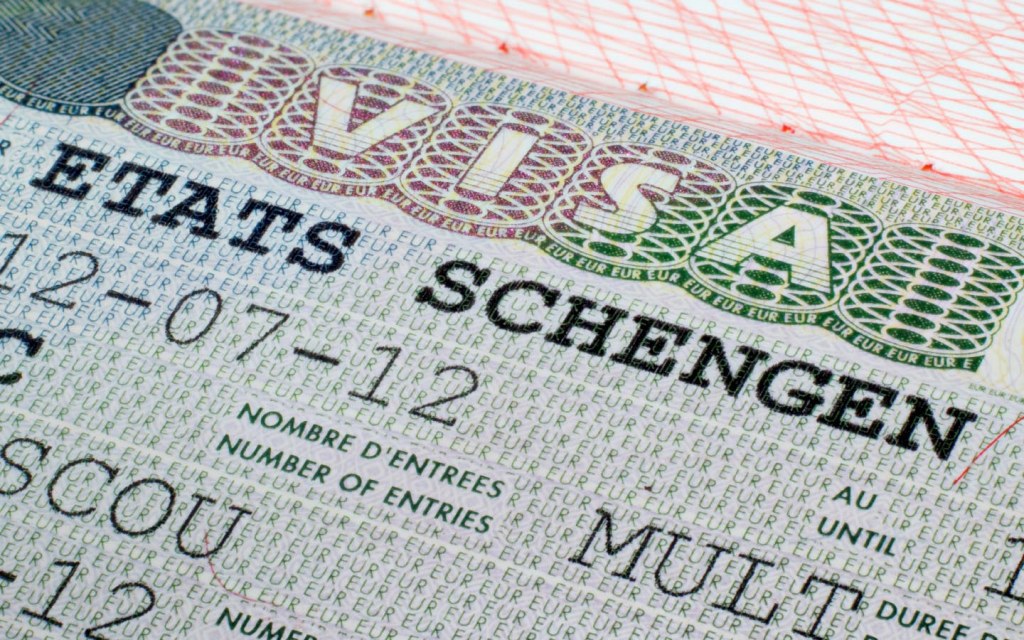
The Schengen Visa is the most common type of visa required for travelling to European countries. Schengen is essentially a passport-free zone that covers most of the countries in the European Union (EU), as well as a few that are not a part of it.
Thus, a Schengen Visa can be defined as a short-stay visa that allows people to travel and spend time in any of the member countries listed further below. Moreover, there are no border controls between the Schengen countries. Therefore, having a Schengen Visa enables an individual to liberally move within the territory without facing any restrictions on the border – though you might still need to show your passport, visa and other documentation to the border control officers.
This visa usually allows a short stay of up to 90 days in the Schengen territory within a 180-day period.
However, it is important to note that while Schengen Visa is ideal for tourists and those travelling for business purposes, individuals planning to study, work or live in one of the countries in the Schengen Area need to apply for a different visa.
What is the Schengen Area?
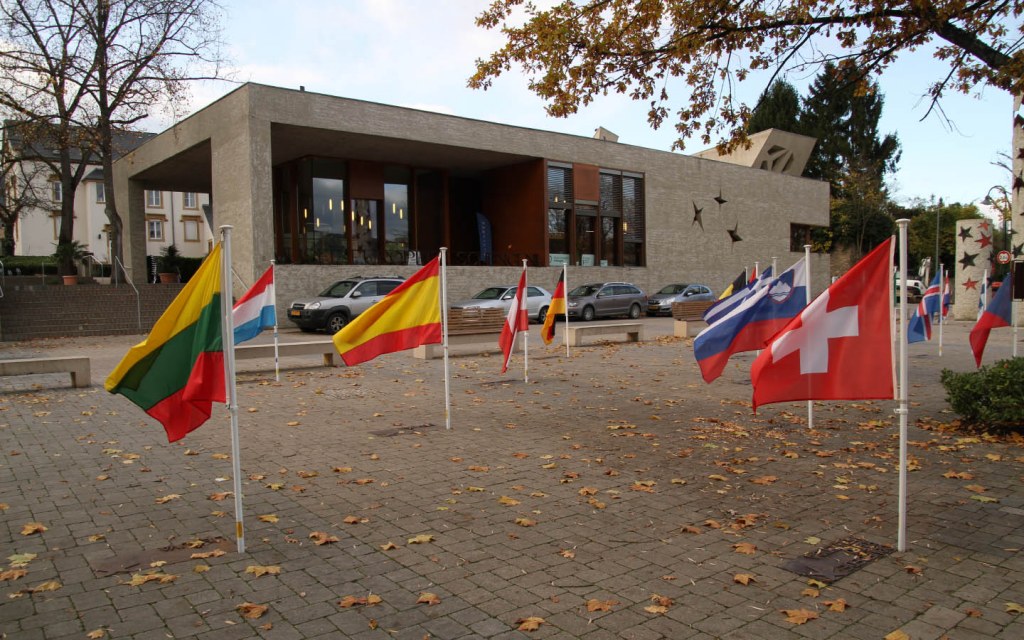
Also referred to as the Schengen Zone, the Schengen Area is the largest free-travel area in the world. It comprises 26 countries that have abolished their internal borders to allow unrestricted and free movement of residents as well as foreign nationals holding the Schengen Visa.
The Schengen Area covers most of the countries in the European Union – except the United Kingdom, Ireland, Bulgaria, Croatia and Cyprus. While the residents of these countries can visit the Schengen Area visa-free for a maximum of 90 days within a 180-day period, they would still require their valid passports to travel through the borders.
Meanwhile, four non-EU countries, including Switzerland, Norway, Iceland and Lichtenstein are also included in the Schengen Area. So, don’t confuse the EU with the Schengen Area, as they are both quite different.
In case you were wondering how vast the Schengen Zone actually is, it boasts an area of about 4,312,099 square kilometer with its external borders reaching the distance of approximately 50,000 kilometer. Overall, the Schengen territory houses hundreds of ports and airports along with land-crossing points.
List of countries you can visit with a Schengen visa
Obtaining a Schengen visa from Pakistan permits you to enter and travel within these 26 countries in Europe.
- Austria
- Hungary
- Norway
- Belgium
- Iceland
- Poland
- Czech Republic
- Italy
- Portugal
- Denmark
- Latvia
- Slovakia
- Estonia
- Liechtenstein
- Slovenia
- Finland
- Lithuania
- Spain
- France
- Luxembourg
- Sweden
- Germany
- Malta
- Switzerland
- Greece
- Netherlands
List of non-Schengen Area countries you can visit with a Schengen visa
Here are the countries that are not a part of the Schengen Area, but allow visa-free travel for Schengen visa-holders.
- Albania
- Antigua and Barbuda
- Belarus
- Bosnia and Herzegovina
- Bulgaria
- Croatia
- Cyprus
- Georgia
- Kosovo
- Mexico
- Montenegro
- North Macedonia
- Romania
- Sao Tome and Principe
- Serbia
- Turkey
It is important to note that some of these countries have their own requirements, apart from the visa, that need to be fulfilled for travelling.
The Schengen Area Entry Requirements
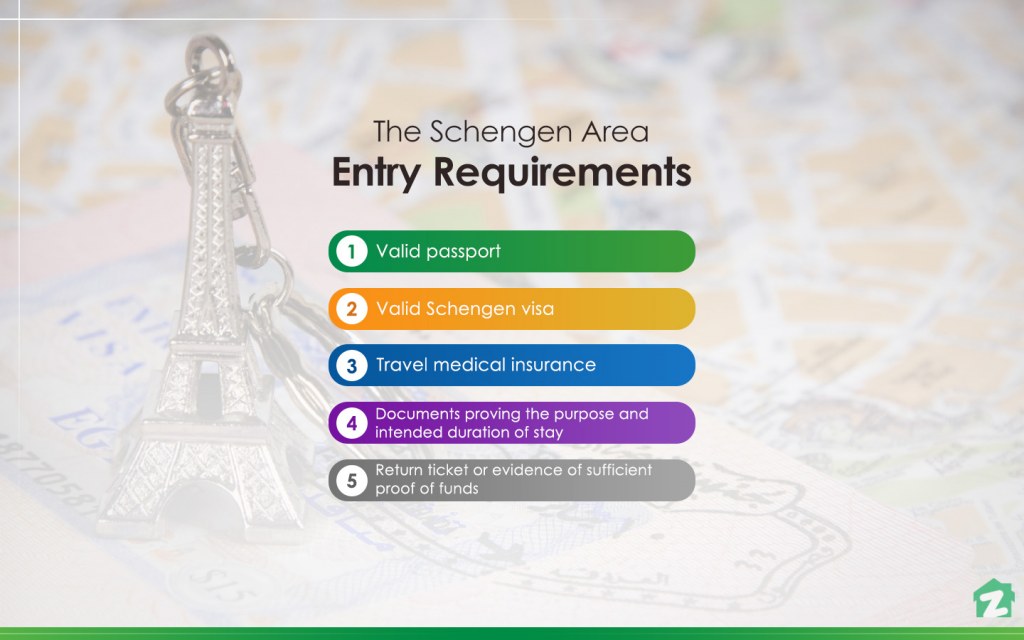
Before we discuss the types of visa, required documents and how to apply for a Schengen Visa from Pakistan, here is a brief overview of the entry requirements one must fulfil to enter the Schengen territory.
- Have a passport that is valid for at least 3 more months after your trip ends
- A Schengen visa that is valid for a stay of maximum 90 days within a 180-day period
- Travel insurance in accordance with the Schengen visa requirements
- Return tickets or enough funds to prove that you can purchase one
- Documents proving your purpose of travel and the dates you will be staying there
Who needs a Schengen Visa?
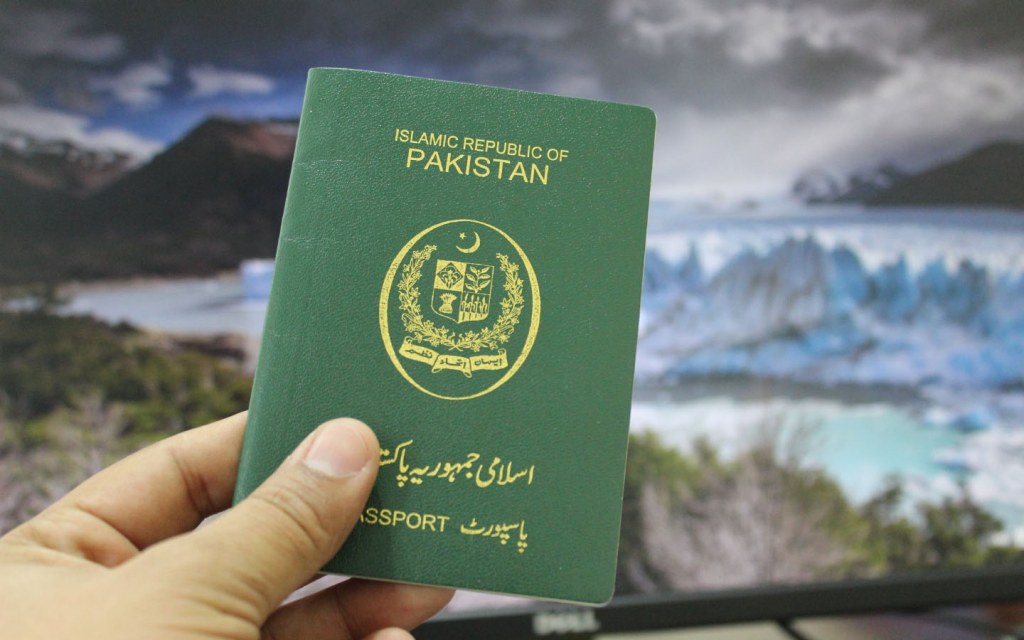
All Pakistani citizens need to apply for a Schengen Visa in order to travel to most of the holiday destinations in Europe. However, in case you have dual nationality, you may or may not be allowed visa-free entry into the Schengen Area, depending on the passport you choose to travel with.
For instance, as of right now, U.S.-passport holders can travel to any of the 26 member countries for up to 90 days (for tourism or business) without having to obtain a Schengen Visa.
Schengen Visa Types
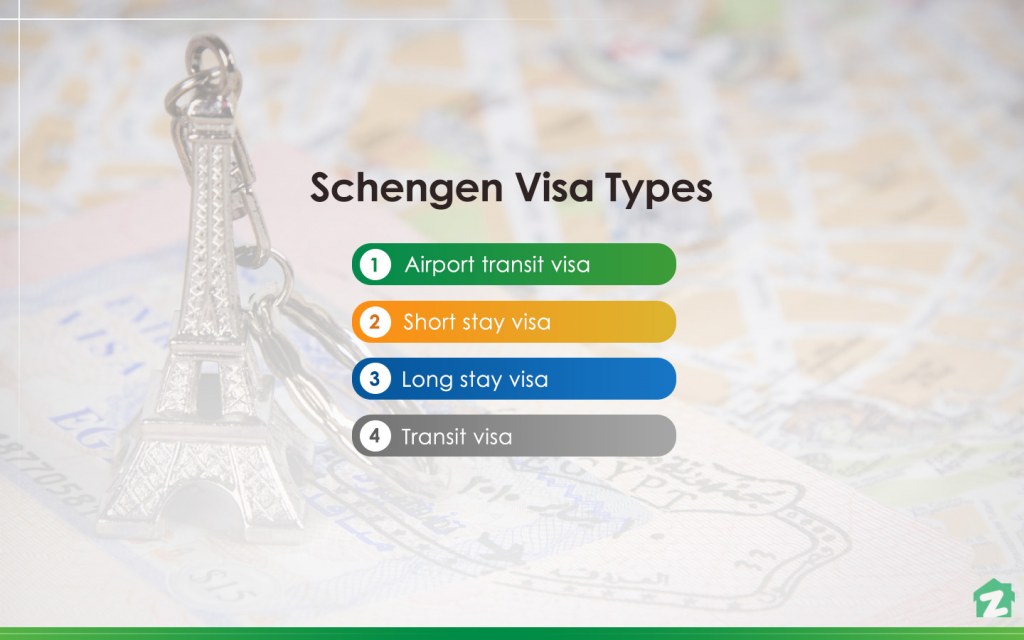
There are different types of Schengen visa one can apply for, depending on the purpose of travel, which is something that needs to be selected while filling the Schengen Visa application form. They can be categorized as short-stay, long-stay, airport transit or transit visa. However, since long-term visas are only granted to the individuals who are studying, working or residing in one of the Schengen countries, we’ll be focusing on short-stay and other similar visas.
It is important to clarify that apart from a multiple-entry visa, which generally allows you to stay in the Schengen Zone for up to 90 days within a 180 days period, the duration of stay for your single-entry visa or double-entry visa depends on the embassy or consulate you’ve applied at.
Here are the types of Schengen Visa according to the purpose of entry.
- Tourism
- Airport transit
- Transit
- Visiting family or friends
- Business trip
- Official visit
- Medical purpose
- Study purpose
- Cultural/sports/religious event and film crews
Let’s discuss these visa types and entry purposes briefly.
Tourism
If you are planning to travel to any of the countries included in the Schengen Zone for sightseeing and experiencing the culture, you need to select this purpose of travelling in your Schengen Visa application form.
The tourist visa is the most common type of Schengen Visa that people from Pakistan apply for. At the earliest, you can apply for a Schengen Tourist Visa from Pakistan three months before your intended date of travel. At the very least, it is advised to apply for this short-stay visa at least 15 working days before your trip. Tourist visas are valid for a stay up to 90 days within a 180-day time frame.
Airport Transit
People travelling through the international zone of a Schengen country airport need to possess Airport Transit Visa. However, they can’t use this to enter a Schengen member country.
Pakistani citizens need to obtain an airport transit visa if they fall under this category.
Transit
This purpose of travel is only selected if you will be stopping over in a Schengen country for a very short period. These visas are usually obtained by seafarers or those travelling on a cruise ship, as they stop at certain ports for a very limited amount of time.
Visiting family or friends
People who have relatives or friends legally residing in one of the Schengen countries may be eligible to apply for this type of visa. Generally referred to as a Schengen Visit Visa, selecting this purpose of travel would require the applicant to submit a letter of invitation along with other specific documents at the time of visa application submission.
Business trip
This is also a short-stay visa meant for people who have to travel to and from the Schengen countries for business purposes.
Official visit
You can only select “Official Visit” as your purpose of entry while applying for a Schengen Visa from Pakistan if you are travelling to a country in the Schengen Zone on official duty. Government officials travelling with delegations with identical travel dates have to apply for this type of visa.
Medical purpose
This type of visa enables patients seeking medical treatment to travel to any of the Schengen countries. If you select ‘Medical Reasons’ as your purpose of travel, you’ll be required to submit your medical records as well as some other specific documents. Generally, patients looking to undergo treatment in any of the member countries are allowed to stay at a clinic or a hospital for up to three months within a certain time frame. This can vary on a case-to-case basis.
Study purpose
Students who plan on attending courses at any educational institution in the Schengen Area for a period shorter than three months or have to take an entrance exam for school or university in the territory need to apply for a Schengen Study Visa.
However, this visa has short-term validity. Most students who have to continue their studies for a longer period of time are granted long-term National Visa, which enables them to study as well as work in their country of stay for a period of up to 12 months.
Cultural, Sports, Religious Events and Film Crews
This is yet another short-stay visa for those who want to travel to Europe to participate in a religious, cultural, entertainment or sports event. Film and production crews also select this option as their purpose of travel while applying for a Schengen Visa.
Schengen Visa Application Requirements
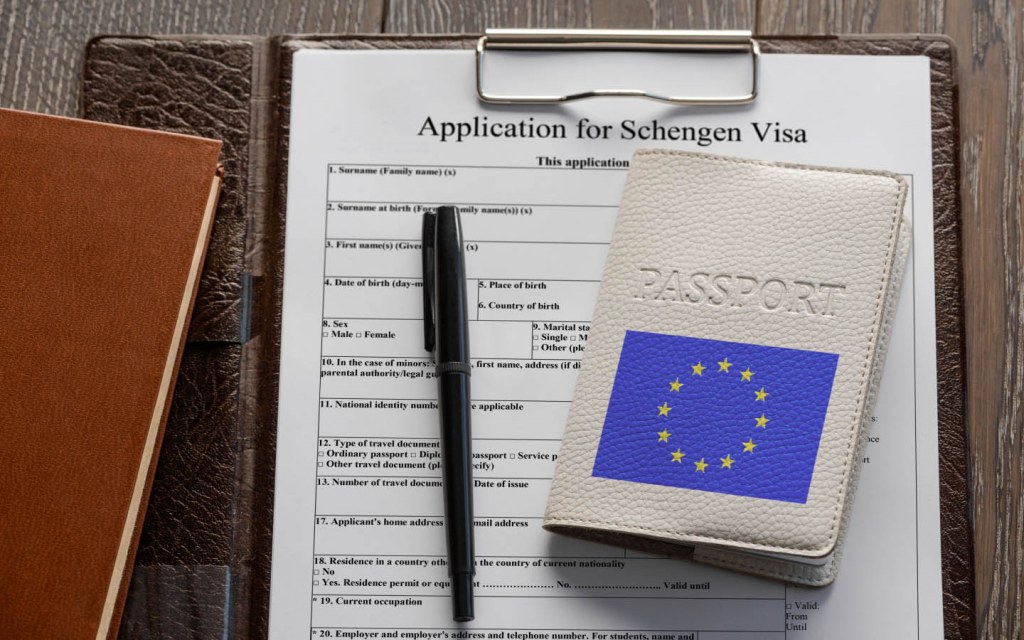
These are the standard documents that are usually required by the embassies and consulates for granting Schengen Visa. However, the requirements might vary as per the purpose of travel and other specifications.
List of required documents
- Two sets of duly filled and signed Common Schengen Application Form (Original + photocopy)
- Three recent passport size photos that are taken within the past three months. Make sure the pictures aren’t doctored in any way. Side pose, hats and veils are also not allowed. The photos must be coloured.
- A passport that’s valid for at least three more months beyond the date you plan to exit the Schengen Zone. Moreover, it must have two blank pages to stamp the visa.
- Older stamped passports and copies of all previous visas (if any)
- Copy of Smart National Identity Card (CNIC)
- Two copies of marriage certificate/nikahnama along with its English translation (if any)
- NADRA-issued Family Registration Certificate (FRC) attested by the Ministry of Foreign Affairs
- Round trip ticket reservation or itinerary. This must include specifications such as flight numbers and dates of travel as well as entry and exit points. Please note that you don’t need to book your tickets or make any payments before obtaining the visa. Simply reserving the return flights is enough as long as you have documentation to prove it.
- Travel health insurance policy with a minimum coverage of 30,000 Euros.
- Proof of accommodation. This shows where you will be staying throughout your stay in the Schengen Zone. You can submit your hotel or hostel reservation. In case you will be staying with a friend or a relative, their address along with a letter of invitation will be required.
- Proof of funds. This document proves you have the financial means to support yourself throughout your stay in the Schengen Area. You can do so through your bank account statement of the past six months, a sponsorship letter confirming that someone else will finance your trip along with the sponsor’s bank statement for Schengen Visa, or a combination of both
Along with the aforementioned documents, embassies also require some additional documents from the individual applying for a Schengen visa from Pakistan as well as other countries. These specific requirements are usually based on the visa applicant’s marital status, employment status and age, among other factors.
For employed individuals
- The Contract of Employment of Confirmation of Employment letter that states the position the applicant holds within the company as well as their starting date.
- Bank statement of the past 6 months
- Leave permission for a certain number of days on the company letterhead signed by the employer
- Salary slips for the past 3 months
- Tax documentation. This can be either the Income Tax Return (ITR) form or Certificate of Income Tax deducted at the source provided by the company.
For self-employed visa applicants
- A copy of license proving that your business is registered with the concerned authorities
- A 6-month bank statement of the company
- Income Tax Return
For attending conferences
- Invitation to attend a conference in the Schengen territory sent directly to the embassy.
- Proof of registration to attend the event
- Receipt of payment (if any)
- Bank statement of the past six months
For student candidates
- Proof of enrolment in a school, college or university
- No-objection certificate from the educational institute
For retired individuals
- The pension statement of the past 6 months
If a visa applicant is married to an EU citizen
- A Confirmation of Employment letter from the spouse’s employer in Europe
- Spouse’s valid passport
- An official marriage certificate
For minors/underage Schengen visa applicants
If a minor is travelling with parents or legal guardian(s):
- Birth certificate along with translated copies
- A visa application form signed by both parents or legal guardian(s)
- In case of a custody issue, a family court order will be required
- Copies of CNIC or passports of both parents
If the minor is travelling alone:
- A notarized parental authorization letter that is signed by both of the parents or the legal guardian(s), along with the above-mentioned documents
Minimum Bank Balance Requirements

This is one of the requirements that most people struggle with while applying for a Schengen Visa from Pakistan.
One thing you need to understand is that your bank statement serves as proof that you have enough funds to pay for your travel and accommodation expenses during your trip to Europe. While applicants are usually asked to submit a 6-month statement of their bank transactions and available balance, they are sometimes required to produce a statement dating back a year. In some cases, the company’s bank statement might also be required.
Ideally, your bank statement for the past 6 months needs to show a balance of at least 3000 Euros.
Schengen Travel Insurance Requirements
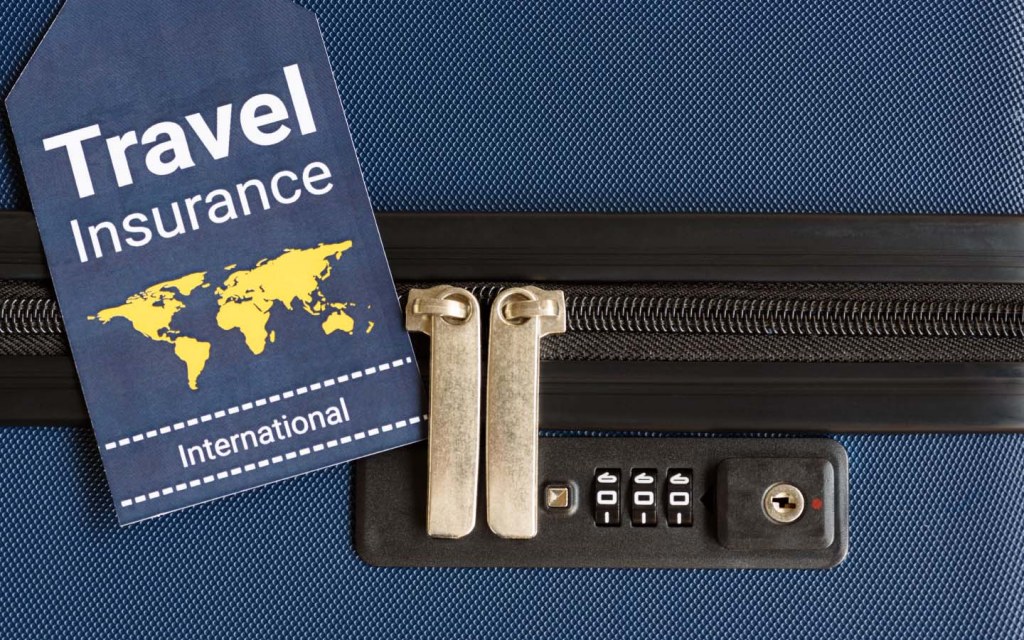
Buying travel insurance is one of the most important requirements for applying for a Schengen visa from Pakistan.
However, you need to make sure the plan you select fulfils all of the following requirements:
- Provides a minimum coverage of 30,000 Euros
- Covers all of the Schengen countries
- Cover any emergency medical expenses that might arise during the trip
How to Apply for a Schengen Visa from Pakistan
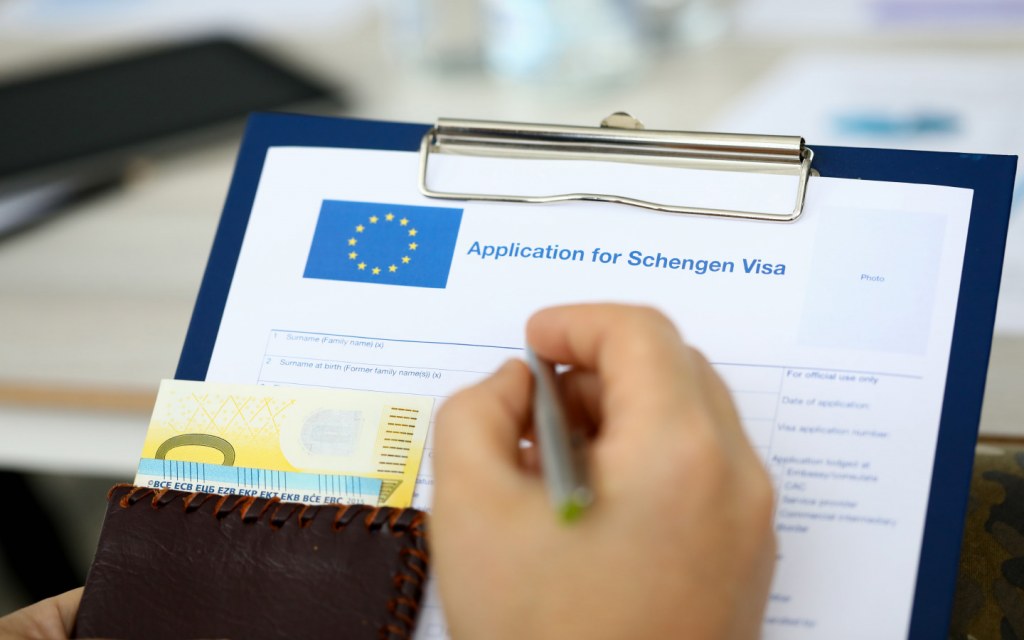
Where to apply for a Schengen visa in Pakistan?
In order to apply for a Schengen Visa from Pakistan, you first need to determine your purpose of travel and which country you would be travelling to. In case you are visiting more than countries in the Schengen Area, you must apply at the embassy or consulate of the country where you’ll be spending most of your time. However, in case it is hard to determine which country you’ll be staying for the longest duration in, you must select the mission of the country that will be your point of entry into the Schengen Zone.
The Schengen Visa fee from Pakistan
- The Schengen Visa fee for adults is 60 Euros.
- Visa fee for children between 6 to 12 years of age is 35 Euros
- Children younger than the age of, diplomatic and official passport holders, students accompanying teachers on a school trip and those with an EU-national family member don’t have to pay a visa fee.
Please note that starting from the first Monday of February 2020, the Schengen Visa fee for adults and children will be increased to 80 and 40 Euros, respectively.
Application process
For the sake of convenience, let’s break down the process of visa application for the Schengen areas:
Step 1: Determine your purpose of travel to identify the Schengen Visa type you have to apply for
Step 2: Figure out where you’re supposed to lodge your application. In Pakistan, the missions of most European countries are situated in Islamabad.
Step 3: Schedule a visa appointment at the embassy or consulate of your chosen Schengen country. You will need to check the official website of the respective mission to find out if an appointment can be booked online or if you have to do it in person.
Step 4: Download the Schengen Visa online application form and fill it correctly. No matter which country you’re travelling to, the form is going to be the same. You will be required to fill in your personal details, some information about your background, the purpose of travelling and other details about your planned trip.
Make sure the form is properly filled and there are no blank columns. If you think a certain question has no relation to your case, mark it as N/A. Moreover, print the duly filled form twice and sign both copies.
Step 5: Collect all of the required documents. This includes the standard required documents that are mentioned above as well as your case-specific documents that may vary with each visa type and your chosen mission.
Step 6: You’ll shortly receive a call for an interview. This interview will be held in person, usually the embassy or consulate of your chosen country. You will hand over your documents along with the visa application form to the visa consular you meet there.
You will also have to attend a short interview, usually ranging between 10 to 15 minutes, where you’ll be asked questions about where you live, where you work and your travel details, among others.
Take a look at some of the most common questions asked during these interviews:
- Which Schengen country/countries are you visiting and your purpose of visit?
- Who is going to pay for your trip?
- Do you have any relatives or friends residing legally in Europe?
- Are you married? If so, how long have you been married for and what does your spouse do?
- Do you have any kids? If yes, how old are they?
- What are your educational qualifications?
- Where do you work?
- How long are you planning to stay in the Schengen territory and where are you going to stay?
Step 7: Pay the non-refundable visa fee
Step 8: Wait for your application to be processed
Generally, it takes at most 15 days for a Schengen visa to be processed. However, in some cases, the period may be extended up to 30 days.
Step 9: Receive your passport
If your Schengen Visa is approved, carefully read the information written on the visa stickers and check the validity of your visa. In the instance of your Schengen visa getting rejected, read the reasoning behind their decision and make sure to fulfil it the next time you apply. Also, you can appeal your visa rejection, if needed.
General FAQs
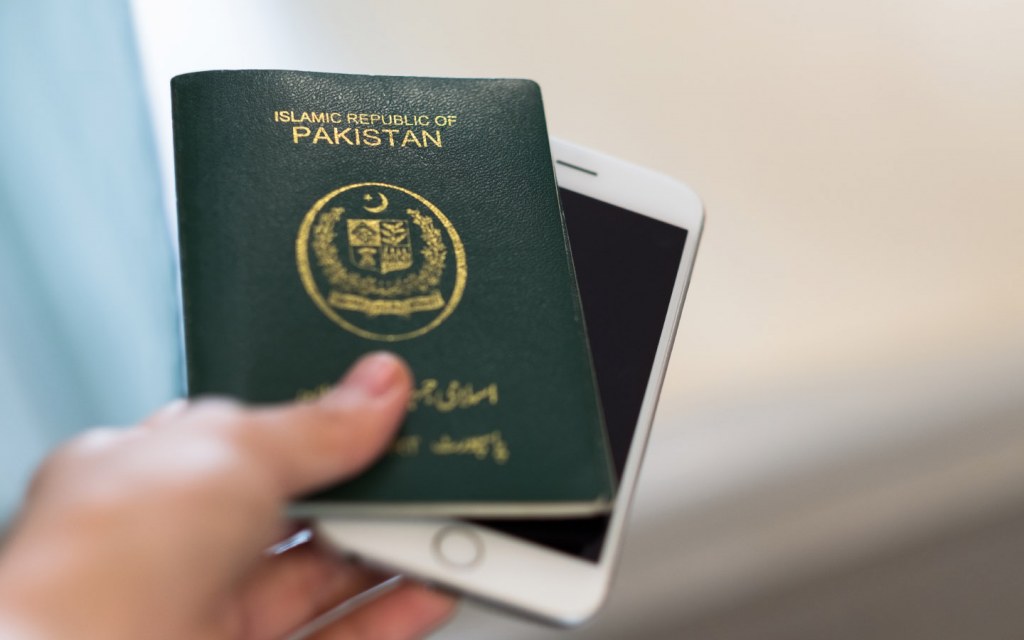
What is the difference between visa validity and duration of stay?
The terms ‘Duration of Stay’ and Visa Validity’ are not interchangeable.
While the duration of stay refers to the maximum number of days you are allowed to stay in the Schengen territory, visa validity is the period of time during which you can use your visa to travel to your desired location.
Is the United Kingdom part of the Schengen Area?
No, the United Kingdom is not a part of the Schengen Area. You will have to apply for a separate visa if you wish to travel to the UK.
Can I travel to more than one member country with the same Schengen visa?
Yes, you can travel to more than one member country after applying for a Schengen visa from Pakistan. Just make sure to stay within the permitted time frame mentioned on your visa.
In case of rejection, is the visa processing fees reimbursable?
No, the Schengen Visa is not reimbursable.
Please note that following the aforementioned instructions does not guarantee your visa approval. Moreover, you are advised to visit the official websites of the countries you are planning to visit to learn more about their individual Schengen visa requirements for Pakistanis.
Anyhow, that was everything you needed to know about applying for a Schengen visa from Pakistan. In case you have any queries or want to share your feedback, feel free to get in touch with us by emailing at blog@zameen.com.
Meanwhile, you can also take a look at our detailed guide on how to travel to Turkey from Pakistan to learn about its visa requirements, visa application process as well as places to visit in one of the most historically rich countries in the Muslim world. Similarly, you can also check out our guide on taking a trip to Azerbaijan, which happens to be an emerging tourist destination.
Not to mention, since Pakistan topped the list of the best holiday destinations for 2020 by Conde Nast Traveller, you can even consider visiting the popular holiday destinations in the country this year.
For more information on where to travel within and outside the country, stay connected to Zameen Blog, the top lifestyle blog in Pakistan. You can also subscribe to our newsletter to receive the latest updates about tourism, home décor, construction and real estate trends in Pakistan.



